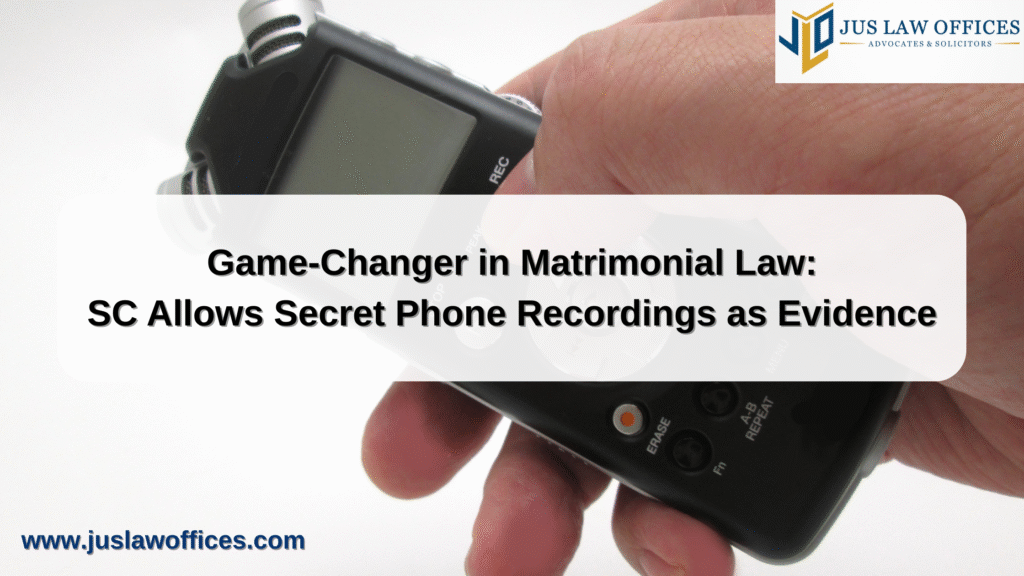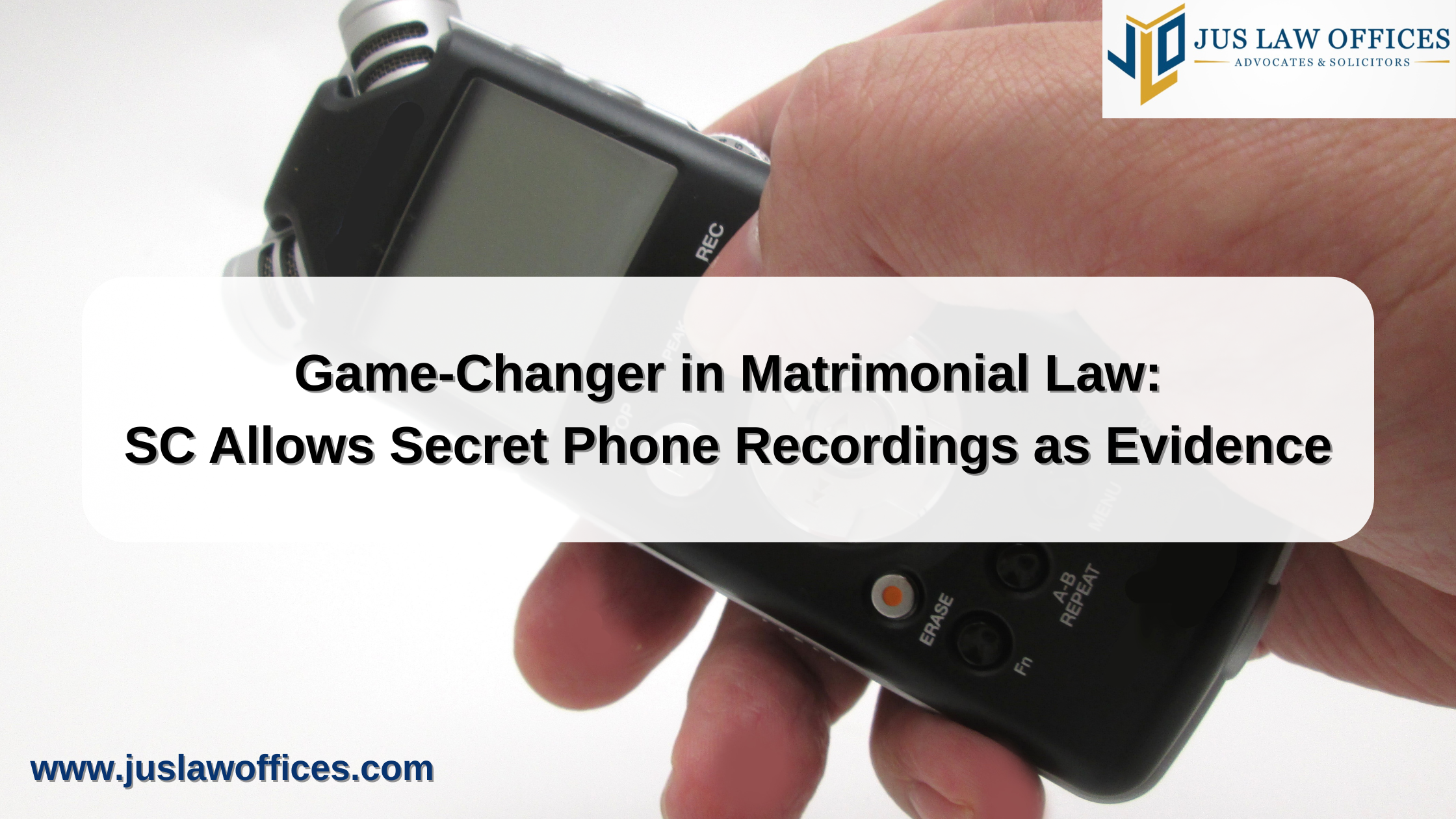
In a landmark ruling, the Supreme Court of India has held that secretly recorded telephonic conversations of a spouse are admissible as evidence in matrimonial proceedings. This judgment decisively sets aside the contrary view previously taken by the Punjab & Haryana High Court and addresses the tension between the right to privacy and the right to a fair trial in divorce and other matrimonial disputes.
The Background
- Case Overview:
The matter arose from divorce proceedings under Section 13 of the Hindu Marriage Act, 1955. The Family Court had allowed a husband to rely on a compact disc containing secretly recorded phone calls with his wife to substantiate allegations of cruelty. Challenging the Family Court’s decision, the wife argued before the High Court that accepting such evidence violated her right to privacy. - High Court’s Position:
The Punjab & Haryana High Court sided with the wife, holding that such recordings were a clear breach of the fundamental right to privacy and inadmissible.
The Supreme Court’s Perspective
A bench comprising Justice BV Nagarathna and Justice Satish Chandra Sharma overturned the High Court’s verdict, clarifying the law:
- Section 122 of the Indian Evidence Act:
The section generally bars disclosure of communications during marriage, but provides exceptions for legal proceedings between spouses or for crimes against each other. - Fair Trial Over Privacy in Matrimonial Cases:
The Court emphasized that the right to a fair trial and the discovery of truth must sometimes override claims of privacy between spouses in the context of matrimonial litigation. The bench stated:
“Exception under Section 122 has to be construed in light of the right to a fair trial, which is also an aspect of Article 21 of the Constitution.”
- Scope of Right to Privacy:
The judges clarified that Section 122 “does not recognise” a standalone right to privacy between spouses for the purpose of evidence, and it carves out a clear exception in matrimonial cases. - Authenticity and Reliability:
The Court did caution that trial courts should be “circumspect” and must assess the authenticity and reliability of electronic records before relying on them.
Key Observations by the Supreme Court
- No Absolute Privilege:
Spousal privilege under Section 122 is not absolute. It cannot shield communications relevant to justice in legal proceedings between spouses. - No Blanket Ban on Secret Recordings:
Allowing secret recordings does not jeopardize domestic harmony; rather, the Court asserted, situations involving clandestine recordings are themselves manifestations of a broken relationship. - Finding the Truth:
Modern technology can help surface facts that would otherwise remain hidden, especially since events in a marital home typically lack third-party witnesses.
Implications for Divorce and Matrimonial Disputes
- Evidentiary Value:
Secretly recorded conversations can now be admitted by Family Courts—if proven to be authentic and reliable—to establish core facts such as cruelty or other matrimonial wrongs. - Guidance for Litigants:
Spouses embroiled in litigation must be aware that their communications, even private ones, may be scrutinized in court if relevant to the case.
Conclusion
The Supreme Court’s ruling is a significant development in balancing individual privacy and the justice system’s quest for truth in deeply personal disputes. For litigants and counsel, it offers new clarity on the evidentiary landscape in Indian matrimonial law.
Disclaimer: This blog is for informational purposes only and does not constitute legal advice. For specific cases, consult a qualified lawyer.

